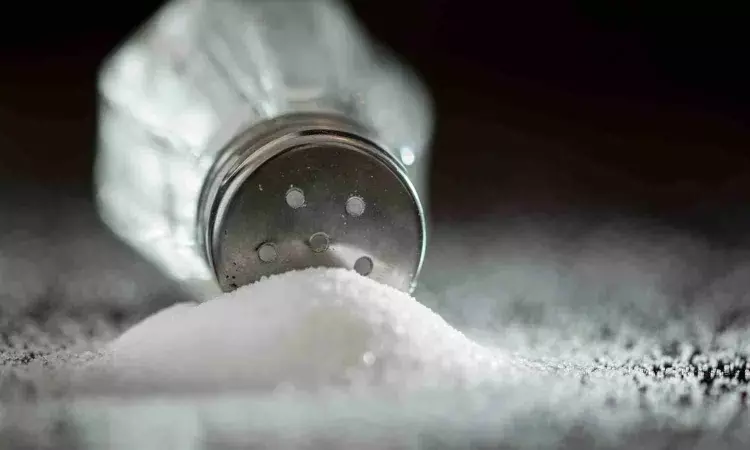- Home
- Medical news & Guidelines
- Anesthesiology
- Cardiology and CTVS
- Critical Care
- Dentistry
- Dermatology
- Diabetes and Endocrinology
- ENT
- Gastroenterology
- Medicine
- Nephrology
- Neurology
- Obstretics-Gynaecology
- Oncology
- Ophthalmology
- Orthopaedics
- Pediatrics-Neonatology
- Psychiatry
- Pulmonology
- Radiology
- Surgery
- Urology
- Laboratory Medicine
- Diet
- Nursing
- Paramedical
- Physiotherapy
- Health news
- Fact Check
- Bone Health Fact Check
- Brain Health Fact Check
- Cancer Related Fact Check
- Child Care Fact Check
- Dental and oral health fact check
- Diabetes and metabolic health fact check
- Diet and Nutrition Fact Check
- Eye and ENT Care Fact Check
- Fitness fact check
- Gut health fact check
- Heart health fact check
- Kidney health fact check
- Medical education fact check
- Men's health fact check
- Respiratory fact check
- Skin and hair care fact check
- Vaccine and Immunization fact check
- Women's health fact check
- AYUSH
- State News
- Andaman and Nicobar Islands
- Andhra Pradesh
- Arunachal Pradesh
- Assam
- Bihar
- Chandigarh
- Chattisgarh
- Dadra and Nagar Haveli
- Daman and Diu
- Delhi
- Goa
- Gujarat
- Haryana
- Himachal Pradesh
- Jammu & Kashmir
- Jharkhand
- Karnataka
- Kerala
- Ladakh
- Lakshadweep
- Madhya Pradesh
- Maharashtra
- Manipur
- Meghalaya
- Mizoram
- Nagaland
- Odisha
- Puducherry
- Punjab
- Rajasthan
- Sikkim
- Tamil Nadu
- Telangana
- Tripura
- Uttar Pradesh
- Uttrakhand
- West Bengal
- Medical Education
- Industry
Salt Restriction in Heart Failure may not Impact Morbidity or Mortality, reveals research

Canada: Strict sodium intake-regardless of any fluid intake restrictions-is unlikely to provide clinical benefits for patients with heart failure, a recent study has revealed. The findings were published online in the European Journal of Clinical Investigation on June 26, 2024.
"Mortality and morbidity are not reduced with sodium restriction in heart failure patients, although some symptomatic improvement may be expected. However, moderate daily intake of sodium (3.0-4.5 g) may improve the functional status and quality of life of these patients," Paolo Raggi, Division of Cardiology, Department of Medicine, University of Alberta, Edmonton, Alberta, Canada, wrote in his narrative review.
The review of studies indicated that sodium intake should only be moderately restricted, as "patients are more likely to adhere to guidelines that are not overly strict, and there is no evidence that severe sodium restriction improves survival or reduces hospital admissions."
For decades, standard practice has advocated for reduced sodium intake in patients with heart failure based on the rationale that neurohumoral activation leads to fluid retention. However, until recently, there had been no large randomized clinical trials to support this recommendation. Some observational studies and meta-analyses even indicated that strict sodium restriction might be associated with worse outcomes in heart failure patients.
Against the above background, a narrative review was conducted in which the author aimed to extricate from the literature whether strict sodium restriction is beneficial in patients with heart failure. For this purpose, PubMed-indexed articles were searched between 2000 and 2023 for these terms: heart failure, salt, sodium, and fluid intake.
The following were the key findings:
- Most randomized trials were small and showed a wide heterogeneity of interventions. A single large, randomized clinical trial was stopped early due to futility.
- There was no evidence that severe sodium restriction reduces the incidence of mortality and hospitalization in patients with heart failure.
- Quality of life and functional class may improve slightly with sodium restriction.
In patients with heart failure, morbidity and mortality are not reduced with sodium restriction, although some symptomatic improvement may be expected, the study concluded.
Reference:
Raggi, P. Salt versus no salt restriction in heart failure a review. European Journal of Clinical Investigation, e14265. https://doi.org/10.1111/eci.14265
Dr Kamal Kant Kohli-MBBS, DTCD- a chest specialist with more than 30 years of practice and a flair for writing clinical articles, Dr Kamal Kant Kohli joined Medical Dialogues as a Chief Editor of Medical News. Besides writing articles, as an editor, he proofreads and verifies all the medical content published on Medical Dialogues including those coming from journals, studies,medical conferences,guidelines etc. Email: drkohli@medicaldialogues.in. Contact no. 011-43720751


